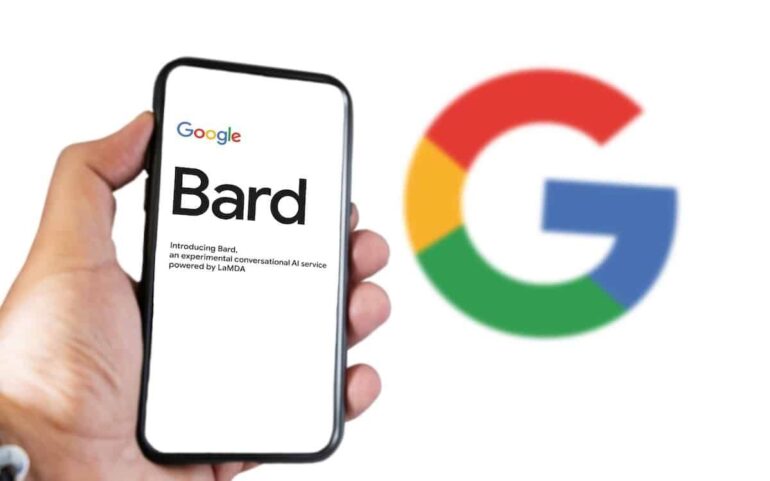TL;DR:
- Google has postponed the planned launch of its AI chatbot, Bard, in the European Union.
- The Irish Data Protection Commission (DPC) reported the delay, citing inadequate information provided by Google.
- European users have already been using OpenAI’s chatbot, ChatGPT, without restrictions.
- Specific concerns raised by the DPC regarding Bard have not been disclosed.
- Other EU data protection authorities have identified various data protection issues related to ChatGPT, which may apply to Bard.
- The DPC intends to share information with other data protection authorities as it awaits responses from Google.
- A task force has been established by EU data protection authorities to coordinate enforcement actions on chatbots.
- The DPC’s decision does not imply a ban but rather a delay due to insufficient information provided by Google.
Main AI News:
In a recent development, Google has decided to postpone the launch of its AI chatbot, Bard, in the European Union. The Irish Data Protection Commission (DPC), which serves as the tech giant’s lead data protection authority in the region, reported the delay. This move comes long after OpenAI introduced its rival chatbot, ChatGPT, in a free research preview in November 2022, without imposing any restrictions on user access based on location.
Graham Doyle, the deputy commissioner of the DPC, stated today that Google had informed the authority of its plan to launch Bard in the EU “this week.” However, the company failed to provide adequate information to the regulator ahead of the scheduled date, resulting in the launch being postponed indefinitely.
Doyle expressed concerns about the lack of detailed briefing, the absence of a data protection impact assessment (DPIA), and missing supporting documentation from Google. The DPC urgently requested this information and has raised several additional data protection questions with the company. Consequently, the launch of Bard will not proceed as originally intended.
At present, there is no information available regarding the new timeline for Bard’s launch in the EU. Notably, European users have already enjoyed unrestricted access to similar large language model (LLM) technology for months, as OpenAI did not impose limitations during the ChatGPT research preview. Additionally, European users can effortlessly access Google’s Bard by using a VPN and setting their location to the United States or another market where the tool is accessible.
The DPC did not disclose specific concerns raised with Google regarding Bard. However, other EU data protection authorities have already highlighted various data protection issues associated with ChatGPT, which may also be applicable to Google’s chatbot. These concerns encompass the legal basis claimed for processing user data to train LLM AI models, compliance with transparency requirements stipulated by regional privacy laws, addressing the challenge of AI-generated disinformation, ensuring child safety, and granting EU users their data access rights, including rectification and erasure.
DPC deputy commissioner Doyle mentioned that the matter is under ongoing examination, and the DPC intends to share information with other data protection authorities once they receive answers to their inquiries from Google.
In April, EU data protection authorities agreed to establish a task force, facilitated by the European Data Protection Board, to coordinate enforcement actions regarding ChatGPT. Therefore, the DPC likely aims to contribute its findings to this effort if deemed appropriate.
OpenAI’s competing chatbot, ChatGPT, quickly attracted the attention of several EU data protection authorities this spring. In April, it faced a temporary suspension of service in Italy following intervention by the local data protection authority, Garante. Unlike Google, OpenAI does not have a significant establishment in any EU Member State, granting all EU data protection authorities the jurisdiction to intervene under the General Data Protection Regulation (GDPR). However, only the Irish DPC is authorized to oversee Google’s chatbot.
DPC commissioner Helen Dixon has previously criticized hasty bans on generative AI chatbots, urging regulatory bodies to carefully consider how to apply the bloc’s rules to such technology before imposing prohibitions.
Notably, there is no outright ban from Ireland at present; rather, there is an unspecified degree of delay explicitly attributed to Google’s inadequate provision of information, along with some unspecified “data protection questions.” Unlike in the case of Garante’s intervention with ChatGPT, European users are unaware of the nature of the concerns raised by the DPC against Google. As a result, it is challenging to gauge the extent of the Irish regulator’s intervention regarding this powerful generative AI tool or whether it will lead to Google being compelled to offer comparable privacy disclosures and enhanced user control, similar to the outcome with ChatGPT after the incident in Italy. However, investigations into ChatGPT’s GDPR compliance are still ongoing in multiple EU Member States.
Conclusion:
The delay in launching Google’s AI chatbot, Bard, in the EU signifies the increasing scrutiny and concerns surrounding data protection and privacy in the deployment of large language model technology. The actions of the Irish Data Protection Commission and other EU authorities highlight the need for companies to adhere to transparency requirements, address AI-generated disinformation, ensure child safety, and grant users data access rights. This development underscores the growing importance of comprehensive privacy disclosures and user control mechanisms in the market for AI chatbots and similar AI-powered services.

